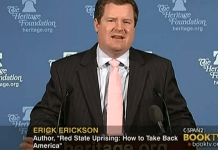Parents and educators are voicing concerns over inadequate provisions for students with special educational needs (SEND), amidst a growing demand and insufficient funding in schools across the UK. Lucy, whose 12-year-old daughter Emma* has special needs, highlighted their challenges through BBC’s Your Voice, Your Vote initiative, emphasizing SEND provision as a critical issue in the upcoming election.
Lucy, whose name has been changed to protect her identity, expressed frustration over Emma’s lack of appropriate support in secondary school. “She doesn’t get the right support, she keeps on being suspended for the same things but she is a good child, she is not bad,” Lucy lamented. Emma herself acknowledged the stark difference in support between primary and secondary education, noting the overwhelming size of her current school compared to her smaller primary, where she felt more recognized and supported.
Emma’s difficulties at school include skipping lessons and occasional rudeness towards teachers, behaviors that have resulted in multiple suspensions. Lucy, a single mother, described the challenges of bringing Emma to work due to the frequent suspensions, highlighting the disruption to both their lives. “I can’t leave her home alone, she could do something unpredictable,” Lucy explained, underscoring her struggle to balance work and Emma’s needs without adequate school support.
Dominic Burke, headteacher at Balcarrass School in Cheltenham, echoed these concerns, attributing the crisis in SEND support to inadequate funding. He pointed out a significant rise in the number of students requiring SEND assistance over the past decade, far outpacing the funding allocated to meet these needs. “We’re heading for a full-blown crisis. Somebody has to come up with a plan,” Mr. Burke emphasized, highlighting the urgency of addressing funding shortfalls in education.
Education consultant Bill Jerman underscored the strain on both special schools and mainstream education due to insufficient resources. He noted that special schools are operating at full capacity, forcing more children with complex needs to remain in mainstream schools. This shift, while necessary, strains resources and impacts the entire school community, as teaching assistants are increasingly focused on high-needs students, limiting their ability to support other groups.
Political parties have outlined their approaches to addressing these challenges in their election manifestos. The Conservative Party pledges to transform SEND education by ending the “postcode lottery” of support, creating 60,000 new school places, and establishing 15 new free special schools. Labour promises a community-wide approach to enhance inclusivity and expertise in mainstream schools, alongside ensuring special schools cater effectively to those with the most complex needs.
The Liberal Democrats have committed to tackling the SEND crisis by providing additional funding to local authorities and establishing a new national body to support children with high needs. They aim to end the disparities in SEND provision across different regions. Meanwhile, the Green Party advocates for a fully inclusive education system with increased funding for SEND support within mainstream schools, proposing a £5 billion investment to achieve these goals.
These proposals reflect broader efforts to address the systemic challenges facing students with special educational needs and disabilities. The discussions underscore the critical importance of equitable access to education and adequate support for all students, regardless of their needs or disabilities. As the election approaches, stakeholders, including parents, educators, and policymakers, are calling for meaningful reforms to ensure every child receives the support necessary to thrive in the education system.
The issues surrounding SEND provision in UK schools have emerged as a central concern in the upcoming election. With growing demand and insufficient funding, parents like Lucy and educators like Dominic Burke and Bill Jerman are calling for urgent action to improve support for students with special needs. The manifestos of political parties outline varying strategies to address these challenges, reflecting a commitment to inclusive education and equitable access to resources.voters consider their choices, the future of SEND provision remains a critical issue that will shape the educational landscape for years to come.























